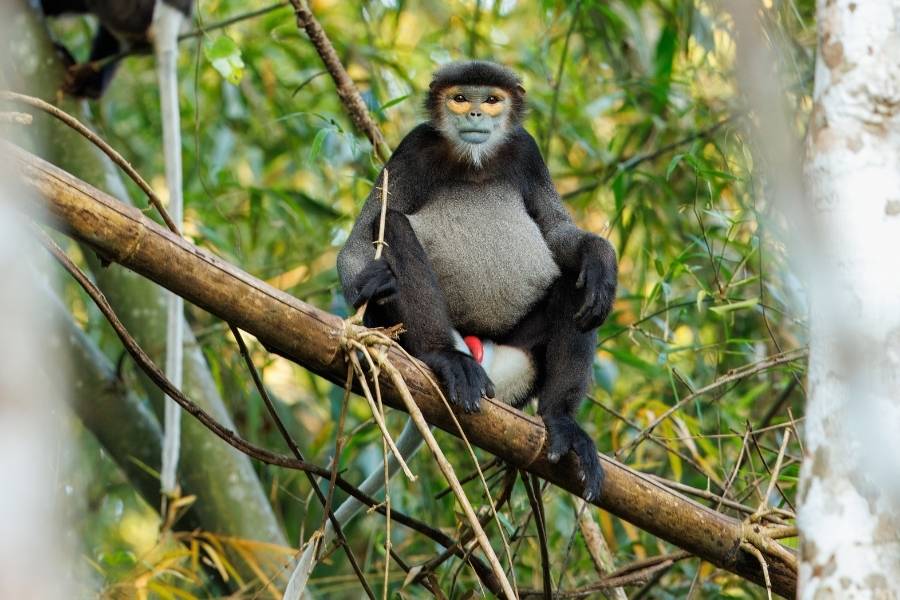The search for one of two critically endangered black-shanked doucs being smuggled into Kolkata from Bangkok has been called off. The primate escaped from the custody of customs officials at Netaji Subhas Chandra Bose International (NSCBI) Airport on Monday (3 November).
In 2000, the black-shanked douc was listed as ‘Endangered’ on the IUCN Red List, before its status was upgraded to ‘Critically Endangered’ in 2015. Buying, selling, or keeping the rare primates, endemic to eastern Cambodia and southern Vietnam, is strictly prohibited under wildlife protection laws.
The doucs, both old-world monkeys (primates in the family Cercopithecidae), were found hidden in small baskets inside a trolley bag carried by a passenger who had arrived on Thai Airways flight TG-313. Around 3am, when officials opened the baskets to check on the animals, one of the doucs slipped out and went missing inside the international arrival lounge.
The NSCBI Airport complex includes adjacent domestic terminals, two upper-level departure areas, and two basement levels, including the registered baggage handling zone.
“We have scanned the CCTV footage of 800 cameras twice but have been unable to spot it,” an airport official said.
The other douc has since been sent back to Thailand, from where the smuggler had boarded the flight with the two primates.
Calls to Himangshu Nigam, superintendent of Customs at NSCBI Airport, went unanswered.
In 2009, eight Common Marmosets (Callithrix jacchus) were stolen from Kolkata’s Alipore Zoological Gardens. The small Brazilian primates are highly sought after in foreign research circles, particularly in reproductive biology and endocrinology, due to their close genetic similarity to humans.
Earlier this year, controversy erupted after official records from the Central Zoo Authority (CZA) revealed discrepancies in Alipore zoo’s reported transfers — while Alipore Zoo stated it sent 54 animals to other facilities, detailed records suggest far more.
That year alone, 51 animals from nine species were sent to Vantara in Gujarat, seven of them protected under Schedule I of the Wildlife Protection Act, 1972. Another 33 were transferred to two other state zoos, bringing the total to 84.
